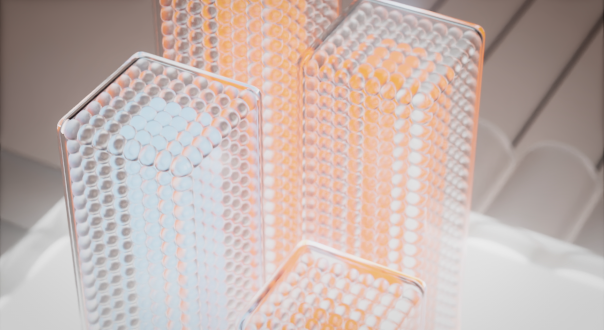- Services
Technology Capabilities
Technology Capabilities- Product Strategy & Experience DesignDefine software-driven value chains, create purposeful interactions, and develop new segments and offerings.
- Digital Business TransformationAdvance your digital transformation journey.
- Intelligence EngineeringLeverage data and AI to transform products, operations, and outcomes.
- Software Product EngineeringCreate high-value products faster with AI-powered and human-driven engineering.
- Technology ModernizationTackle technology modernization with approaches that reduce risk and maximize impact.
- Embedded Engineering & IT/OT TransformationDevelop embedded software and hardware. Build IoT and IT/OT solutions.
- Industries
- GlobalLogic VelocityAI
- Insights
BlogsDecember 16, 2024Gene LeybzonAccelerating Digital Transformation with Structured AI Outputs
This code produces the following output that can be imported into the candidate trackin...
 BlogsOctober 30, 2024Yuriy Yuzifovich
BlogsOctober 30, 2024Yuriy YuzifovichAccelerating Enterprise Value with AI
Discover how financial services integrations are transforming from standalone offerings...

- About Us
Press ReleaseGlobalLogicMarch 11, 2025GlobalLogic Launches VelocityAI to Harness the Power of AI, ...
VelocityAI combines advanced AI technologies with human expertise, helping businesses r...
 Press ReleaseGlobalLogicJanuary 10, 2025
Press ReleaseGlobalLogicJanuary 10, 2025GlobalLogic Announces Leadership Change: Srini Shankar Appointed ...
SANTA CLARA, Calif.–January 10, 2025– GlobalLogic Inc., a Hitachi Group Com...

- Careers
Published on April 25, 2025Why Smarter Testing Is the Key to Winning the MedTech Innovation Race
View all articles Richard LettVP of Healthcare TechnologyShareRelated Content
Richard LettVP of Healthcare TechnologyShareRelated Content Ravi Thummarukudy24 April 2025
Ravi Thummarukudy24 April 2025 Sanjeev Azad17 April 2025View All Insights
Sanjeev Azad17 April 2025View All Insights Natasha Haksar9 April 2025
Natasha Haksar9 April 2025Let's start engineering impact together
GlobalLogic provides unique experience and expertise at the intersection of data, design, and engineering.
Get in touchDevOps-as-a-ServiceInnovation and Rapid PrototypingTesting-as-a-ServiceHealthcare and Life SciencesDemand for innovation across MedTech continues to rise sharply, and with medical devices, it’s no different. As one leading analyst firm observed, “Increasingly, it’s the big, novel innovations that will drive commercial relevance and growth — incrementalism won’t be enough.” One of the areas in which we consistently see a need for disruptive innovation is automating medical device testing, which has profound implications for accelerating the product development lifecycle and providing better patient experiences and outcomes.
This is important because as the race to innovate intensifies for both industry-leading MedTech providers and fast-growing startups, so does the complexity of developing new, groundbreaking devices. AI-driven healthcare technologies, connected medical devices, digital health, and personalized treatments deliver better outcomes for both patients and clinicians, but the development timelines for these innovative products are growing lengthier. The increasing complexity can make product development more resource-intensive and costly.
Device manufacturers need to find that optimal balance where speed and safety, as well as innovation and speed to market, don’t adversely affect compliance or product quality.
Development Cycles That Can’t Keep Pace With Innovation
Even contemporary, accelerated development methodologies like DevOps and the Scaled Agile Framework (SAFe) for medical device development face significant challenges in meeting the demand for faster innovation, and testing is a key contributor to those challenges.
Here’s why. Development begins with identifying user needs and converting them into formal requirements. To demonstrate that a device performs its intended function accurately and without unintended consequences, each requirement undergoes rigorous verification at multiple stages, and user needs are validated.
This process requires complete traceability. It requires developers to create and maintain a matrix that comprehensively maps each requirement to its corresponding test case, with all of it being comprehensively documented. That activity can be particularly time-consuming and resource-intensive for rapidly evolving projects. This directly impacts development speed and flexibility, particularly when verification processes rely heavily on manual effort. While some tests, such as usability or certain safety protocols, require human execution, others are well suited for automation. Identifying and automating those repeatable, high-effort tasks can help reduce bottlenecks and accelerate development cycles.
For example, an established company might acquire a startup. The company then faces the challenge of taking the startup’s early-stage innovation and putting it through the full rigor of a compliant medical device development process. In other words, innovation might start fast, but it can reach patients safely and at scale only when it’s disciplined by the kind of structured testing that safety-critical products demand.
Integrating AI in MedTech Requires Smarter, Faster Verification
When talking about product innovation, you must include AI and smart technologies, which are not only transforming MedTech but also adding complexity and creating new challenges for verification, especially when development must remain compliant and efficient.
First, AI-driven devices are often updated frequently, requiring dynamic, repeatable verification workflows. But traditional static test scripts can’t keep pace with evolving models and algorithms. AI-enabled testing automation is critical to maintaining compliance without slowing down development.
Next, developers must anticipate challenges inherent to AI — such as model bias and performance drift—early in the process through robust requirements and test coverage. Doing that means defining expected behaviors clearly from the start and designing test datasets that simulate diverse real-world scenarios. This approach enables testing across edge cases and subpopulations and helps identify and mitigate potential sources of bias before they become embedded in the system.
Also, it’s important to verify interoperability at both the system level and the component level because AI-based devices rarely operate in isolation. Ensuring they work reliably with hospital systems, wearables, and remote monitoring platforms requires thorough, automated interface and data integration testing.
Testing Built for Modern MedTech
As devices become more software-driven and interconnected, it’s important to consider where manual testing makes the most sense and where automated testing could speed up development and remove bottlenecks while enhancing safety, security, compliance, and quality.
GlobalLogic DeviceSure, an AI-powered test automation solution, uses advanced automation to accelerate the verification process by executing thousands of test cases in parallel. This reduces the time and effort associated with manual testing and shortens time-to-market without compromising safety or performance. In regulated environments where even minor errors can trigger major delays, DeviceSure enables consistent, repeatable test execution across embedded, cloud, and mobile platforms. The solution is flexible and easily integrates with existing tool sets and processes.
DeviceSure enables development teams to move faster by automating the most time-consuming and error-prone parts of the verification process to reduce risk, improve consistency, and accelerate readiness for submission.
Speed, safety, and compliance can’t be tradeoffs. They must co-exist. Device manufacturers that embrace AI-powered test automation can gain a competitive edge by accelerating development while maintaining the rigor that regulatory bodies require.
To see how AI-powered test automation is reshaping the future of medical device development, download your free copy of ‘The Strategic Imperative of Automated Testing in Medical Devices’ today.
